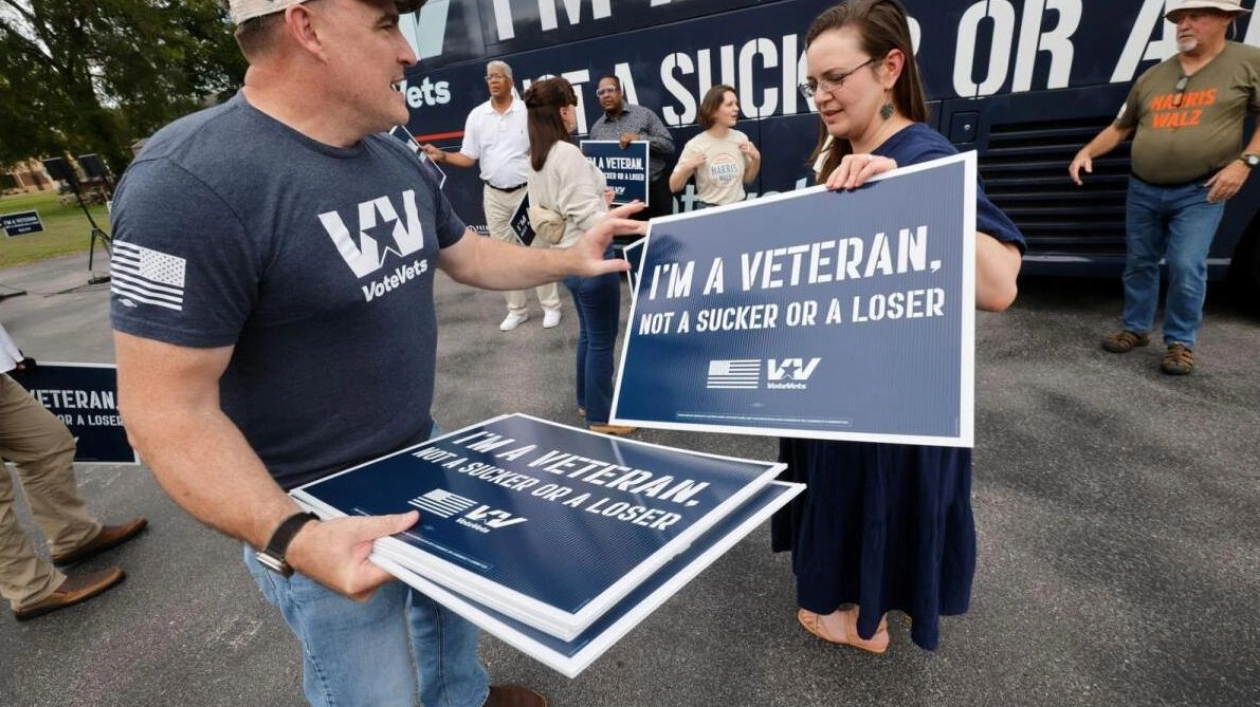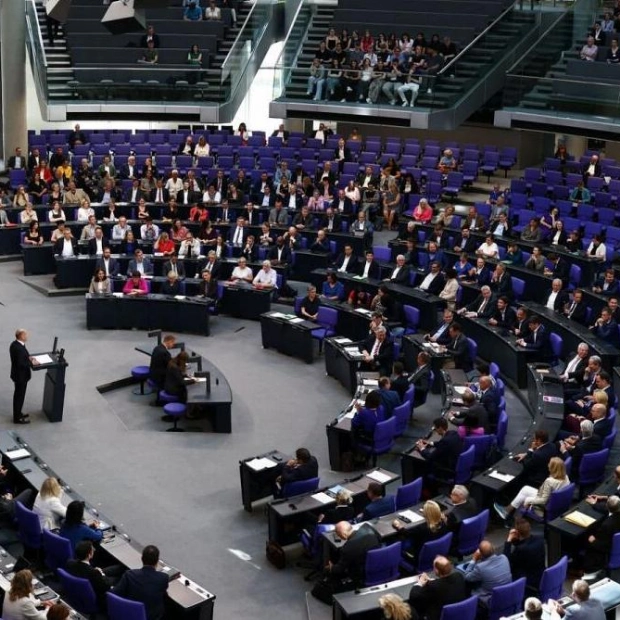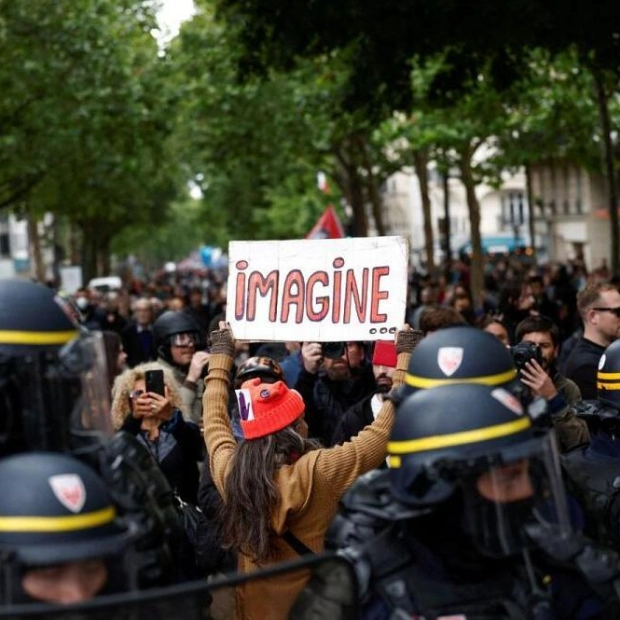Military veterans and Democratic Party supporters distributed signs with responses to some of Donald Trump’s previous comments at an event organized by VoteVets, which opposes Trump, in Fayetteville, North Carolina, US, on October 4, 2024. — Reuters
Donald Trump is poised to rekindle his often strained relationship with the military as commander-in-chief, vowing to keep US troops out of foreign wars while potentially deploying them domestically. Trump has made conflicting statements about American forces, praising their strength at times while also asserting they were depleted and required rebuilding. During his 2016-2020 term, he occasionally clashed with his generals and reportedly referred to fallen troops as 'losers' and 'suckers'—a claim he denied. More recently, his staff stirred controversy by pushing an employee at Arlington, the nation's most revered military cemetery.
The suggestion that Trump could use the military to manage domestic adversaries or migrants could present serious challenges for troops if implemented during his second term, according to Kathleen McInnis, a senior fellow at the Center for Strategic and International Studies. 'Soldiers are obligated to not follow illegal orders, but the distinction between legal and illegal can be unclear in some scenarios,' she said. Trump told Time magazine earlier this year that his plan for mass deportations of undocumented immigrants would involve the National Guard, 'but if I thought things were getting out of control, I would have no problem using the military'. More recently, he told Fox News that 'the bigger problem is the enemy from within', suggesting that 'sick people, radical left lunatics' should be 'handled' by the National Guard or military if necessary.
He has also reportedly considered using US special operations personnel to target drug kingpins in Mexico, while emphasizing that he would avoid significant entanglements abroad for the world's most powerful military. He will assume office amid major crises in the Middle East and Europe—which he has claimed he will swiftly resolve. Some senior officials who worked closely with Trump during his first term have since issued harsh assessments of his character. His former chief of staff and retired general John Kelly told the New York Times that the Republican fits the definition of a fascist, while Mark Milley—the top US military officer under Trump—reportedly described him as 'a fascist to the core' and 'the most dangerous person to this country'. However, it remains unclear how those in uniform view him.
'The generals and admirals who worked for him during the first term described a strained relationship with President Trump,' McInnis said. The president-elect has a history of making controversial remarks about the military, though it is uncertain if this has affected his popularity among US troops. It is challenging to gauge the views of currently serving military personnel due to the armed forces' long-standing policy of political neutrality. Harris criticized Trump's history of negative remarks about the military in a pre-election speech, stating she 'will always honor, never denigrate the service and sacrifice of our troops and their families'. However, Trump emerged victorious—a win that will likely bring significant changes to the US relationship with NATO and its support for Ukraine.
'I anticipate we may see actions like 'quiet quitting' NATO; ending the war in Ukraine by forcing Ukrainian capitulation; and a deep focus on China and Taiwan,' McInnis said about Trump's probable national security policy.
Source link: https://www.khaleejtimes.com






